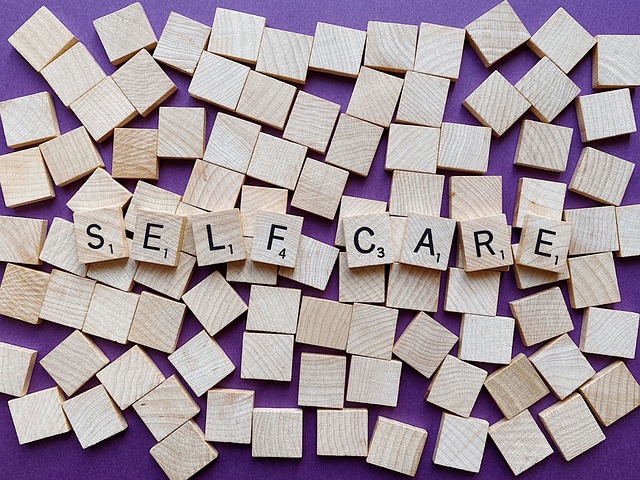When we talk about well-being, we use a word that can have multiple meanings, all important and not to be underestimated. The two best known are undoubtedly physical and mental well-being: closely linked, they are simultaneously composed of a multitude of distinct nuances.
Natural products, such as Justbob’s CBD weed and CBD oil, are also often used to improve well-being as it is now legal in the UK. But there are many ways to improve your health and well-being.
Physical well-being
Being physically well, in some cases, can mean not having any pain in the joints, not having any injuries on the body, or not having suffered any injury. Following other shades of meaning, one can also seek physical well-being by taking care of one’s skin, controlling one’s weight, or exercising to train one’s heart function, strengthen one’s muscles, or improve one’s lung capacity. Last but not least, another example of physical well-being can be a simple eyesight check that allows us to recalibrate the lenses of our glasses, see better, fatigue our eyes less and have fewer headaches.
Inner well-being
On the parallel side, mental well-being is equally nuanced and can sometimes be defined as inner well-being.
Inner well-being is not only that condition we can describe ourselves as ‘light and carefree’. Inner well-being may also be the awareness of having done one’s duty at work, or it may be generated by a feeling of compassion towards a problematic moment of a friend or relative, or it may arise from a new-found balance – this important word again – of one’s emotions (loving and being loved, being supported by friends, feeling part of a family and deriving a feeling of security)
Some synonyms for inner well-being may be words like serenity, peace or happiness. Still, the nuances of this kind of well-being go far beyond these synonyms and embrace multiple opportunities for self-care.
What we can do to care for our well-being
During the whole day, many actions and gestures can affect our physical and inner well-being. We cannot always keep the most stressful moments of a day under control, but there are certainly some good habits that can help us. Small gestures and minimal actions may seem insignificant but can sometimes lead us to tranquillity, serenity and, indeed, a rediscovered general well-being.
1 – Take care of body hydration
Drinking in a hurry and a lot doesn’t make any sense; it is only a source of additional stress for the body. What is certain is that we must never forget to hydrate properly during every day, even the busiest one. Water is fundamental for our organism: it regulates the temperature, allows essential processes such as metabolism to occur correctly, and enables our skin to be beautiful and elastic to withstand climatic changes, wind, or other critical conditions.
Taking care of your hydration is a fundamental habit to reduce stress: did you know that poor hydration can cause annoying headaches?
A minimum rule of thumb may be never to drink less than 1.5L of water per day; for an adult person, however, it is recommended to drink at least 2.5L per day. This amount can be introduced into the body not only as plain water but also through liquid-rich foods such as fruit and vegetables, which also provide the body with vitamins and proteins that support physical well-being.
The tip? Always carry a simple water bottle with you – there are now all kinds and colours. It will be helpful and practical so that you always have the right amount of water, whether at the office, gym or outdoors.
2 – Fitness: let your body let off steam
As we have written, physical well-being does not simply mean not having back, leg or arm pain. Physical well-being is a broader balance that sees our body at the centre but in constant communication with the world around it.
This is why, after a full day’s work, it can be ideal for someone to put on different clothes and go out for a run or go for a long bike ride in the countryside or, again, to dive into the pool surrounded only by water to swim as long as they feel like it. All this to ‘switch off’ completely, perhaps after more than eight hours spent on the same subject or task, in search of greater physical well-being.
Even and especially in the most challenging workouts, our body gets rid of much of the stress accumulated during the day and absorbs new energy. The benefits of training affect the heart, lungs, legs and back, and mind. The advice is to take care of your fitness sphere at least two or three times a week. Practising discipline at a competitive level is unnecessary to feel your body ‘find itself’ and feel better; all you need is a little constancy… and fun! Who said that working out has to be tedious and tiring?
3- Breathe
Every day, when you can – morning or evening is fine – give yourself a space to dedicate to breathing. Between meetings and appointments, we tend to underestimate the importance of breathing and, in fact, we ‘breathe poorly’. Just take a few minutes, lie down, and take long, slow, and deep breaths. Breathe in with your lungs, then breathe out by inflating your belly as much as you can: this simple activity, if repeated 5-6 times a week, stimulates the abdominal muscles, increases resistance, maintains elasticity over time and, above all, instantly decreases accumulated stress.
